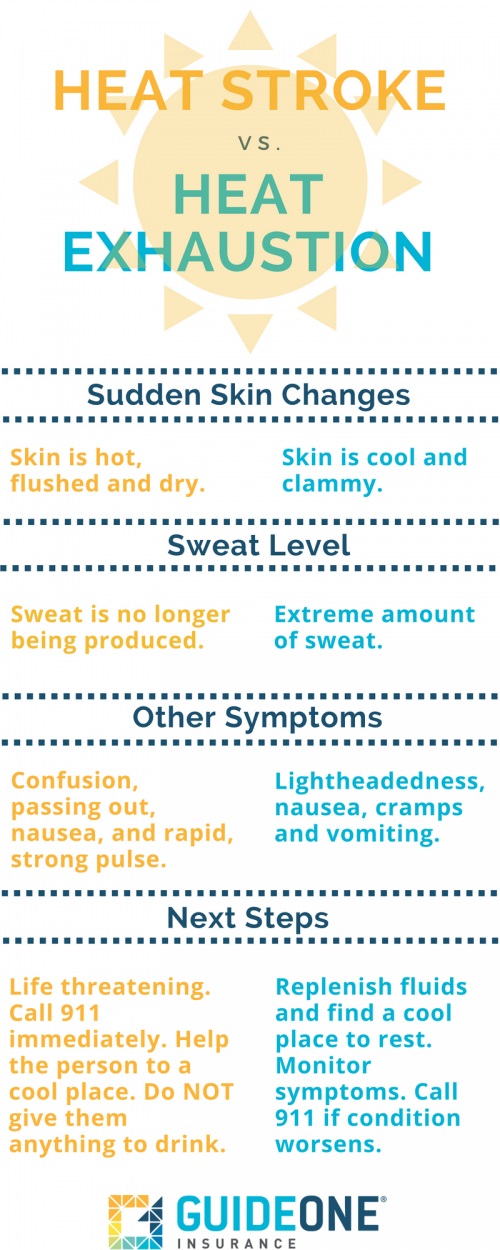
When you are not medically trained and someone has symptoms that can either be easily treated using common sense or need to be treated by medical personnel is hard to determine. When you’re not used to being out in the sun or hot weather our bodies can become overwhelmed by heat.
Summer months bring extreme temperatures, and the sweltering temps bring a higher risk of heat-related illnesses.
To avoid heat-related illnesses be extra careful when spending time in the sun: drink plenty of water, take breaks in the shade and wear sunscreen. It also helps to know the warning signs of the two most common heat illnesses — heat stroke and heat exhaustion — so you can take appropriate action if the need arises. The two illnesses sure sound alike, but have different impacts. Use the following infographic to tell them apart.

(Article Courtesy: GuideOne)
Contact Us